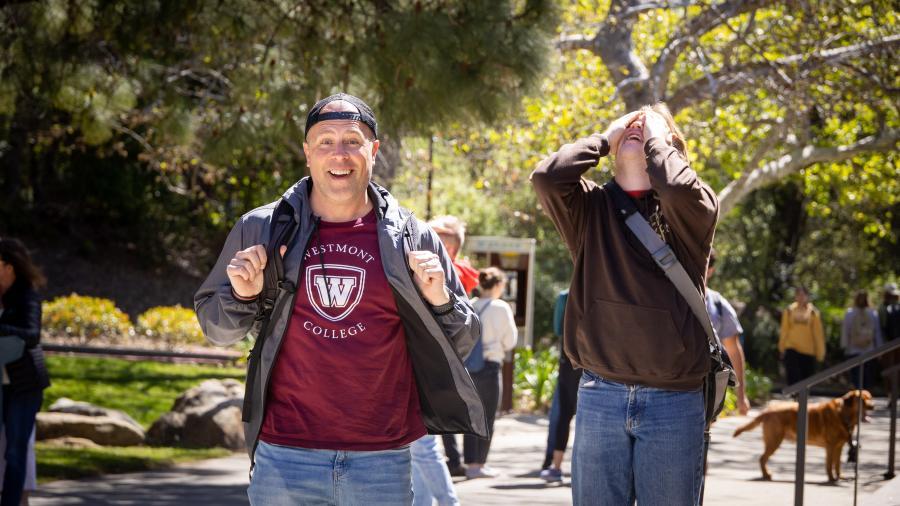Westmont Magazine How Parents Can Avoid Becoming Their Students

Students begin their time at Westmont with Orientation, which helps them adjust to college and learn how to succeed and thrive. Professors and staff members stand by to provide advice and support.
Parents must also adapt when their students leave home and become independent people responsible for all areas of their college career. But who assists them with this transition?
The new Westmont Parent Academy offers resources and materials for parents, guardians and families who want to learn how to adapt to their student’s new life. Staff from Student Life, Parent Relations, and Enrollment, Marketing and Communications have established the academy and seek to support parents throughout their student’s college years.
“Parents are the most influential part of the recruitment process, and they’re more involved than ever before in the lives of their students,” says Irene Neller, vice president for enrollment, marketing and communications. “Like the comical insurance commercial that advises people how to avoid becoming their parents when they buy their first home, we want to help parents avoid becoming their students when they send them off to college. Parents get so excited to enroll their student at Westmont, they often ask, with a twinkle in their eyes, whether they can enroll too.”
On the Westmont Parent Academy website (westmont.edu/parent-academy), parents and guardians can enroll in the program. The college is developing a series of tutorials and lectures by experts and professors in various fields that parents can watch any time so they learn at their own pace.
To date, the college has launched two videos. Edee Schulze, vice president for student life, has created the first one, “Is My Student Thriving in College?” She discusses five ways a student can succeed in college and what parents and guardians should know as they observe their student’s progress, development and growth.
The second video, “Home for the Holidays: Are You Getting Along?” addresses ways to adjust when students return home for the long winter break. Eric Nelson, who directs Counseling and Psychological Services (CAPS), discusses how homecomings can be warm and welcoming, but parents and students must both make adjustments to coexist again in the same space after being apart, sometimes for the first time in their lives. His five tips suggest how to get along after students live away for a semester. The video will help parents make the best of this time together so they can focus on enjoying their student.
Westmont will continue to add classes on topics such as “Building Bridges,” “Civility in Politics,” “Relationships,” “Global Citizenship” and “Leveraging the Summer.”
“We can teach parents how to care for students as they develop and mature without inserting themselves in the process,” Schulze says. “Parents and guardians are important members of the Westmont community, and we value their involvement. They can help students become independent adults with a great work ethic and the ability to solve problems for themselves, all keys to success for young adults. We want to equip parents to do this well.”
